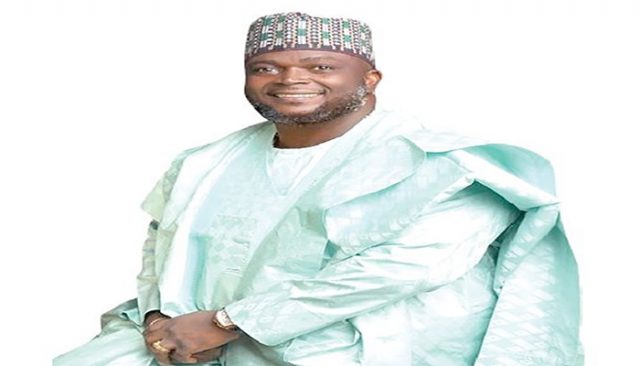The All Progressives Congress (APC), Nigeria’s ruling party, has announced that its presidential ticket for the 2027 election is open to all members, despite the party’s prior endorsement of incumbent President Bola Tinubu for a second term. This declaration has sparked controversy and drawn criticism from opposition parties, who view it as a deceptive tactic aimed at misleading potential aspirants and exploiting their ambitions for financial gain. The Coalition of United Political Parties (CUPP) has labeled the move a “false open contest,” arguing that the endorsement of President Tinubu effectively predetermines the outcome of the primary election. This perceived lack of transparency and fairness raises concerns about the APC’s commitment to democratic principles and its willingness to provide a level playing field for all aspirants.
The CUPP’s National Secretary, Peter Ameh, contends that inviting other aspirants to purchase nomination forms, knowing that the party has already endorsed Tinubu, is a deceptive practice that risks exploiting individuals who may be genuinely interested in contesting the presidency. He argues that this prioritization of revenue generation over a fair and open selection process undermines the principles of democracy and erodes public trust in the APC’s commitment to upholding democratic values. The endorsement of Tinubu by recognized party organs creates a significant bias that effectively renders the primary process a mere formality, casting doubt on the APC’s sincerity in conducting a genuine contest.
Other opposition parties have also weighed in on the controversy, echoing the CUPP’s concerns. The Social Democratic Party (SDP) has accused the APC of stifling internal democracy and promoting imposition and godfatherism. They argue that the APC’s actions, while undemocratic, do not represent the broader Nigerian democratic landscape. The SDP emphasizes its own commitment to robust democratic processes and open contests, highlighting the stark contrast between its approach and that of the ruling party. This criticism further reinforces the perception that the APC’s declared “open contest” is merely a facade designed to create an illusion of democratic participation.
The Peoples Democratic Party (PDP), another major opposition party, has also condemned the APC’s announcement, accusing the ruling party of playing to the gallery. Timothy Osadolor, a member of the PDP’s National Executive Committee, described the APC’s call for aspirants to participate despite Tinubu’s endorsement as “the height of deceit” and an attempt to mock the sensibilities of potential candidates. He argued that the APC’s Organising Secretary’s statement was ill-conceived and highlighted the party’s tendency to prioritize rhetoric over substance. This accusation of insincerity further underscores the opposition’s view that the APC is not genuinely committed to a competitive primary process.
The controversy surrounding the APC’s presidential ticket highlights the ongoing tension between the ruling party’s pronouncements and its actions. While the APC claims to be open to all aspirants, its prior endorsement of President Tinubu casts significant doubt on the fairness and transparency of the primary process. The opposition parties’ criticism underscores the broader concern that the APC’s actions undermine democratic principles and erode public trust in the party’s commitment to a level playing field. The perceived emphasis on revenue generation over genuine competition raises questions about the APC’s motivations and its dedication to fostering a truly democratic internal selection process.
The APC’s handling of the 2027 presidential ticket will likely continue to be a subject of debate and scrutiny in the lead-up to the election. The opposition’s accusations of deceit and manipulation, coupled with the perception of a predetermined outcome, cast a shadow over the APC’s claims of an open and fair contest. This controversy underscores the importance of transparency and adherence to democratic principles in party primaries and raises concerns about the future of internal democracy within the APC. The party’s response to these criticisms and its subsequent actions will be closely watched by both its members and the wider Nigerian public.














